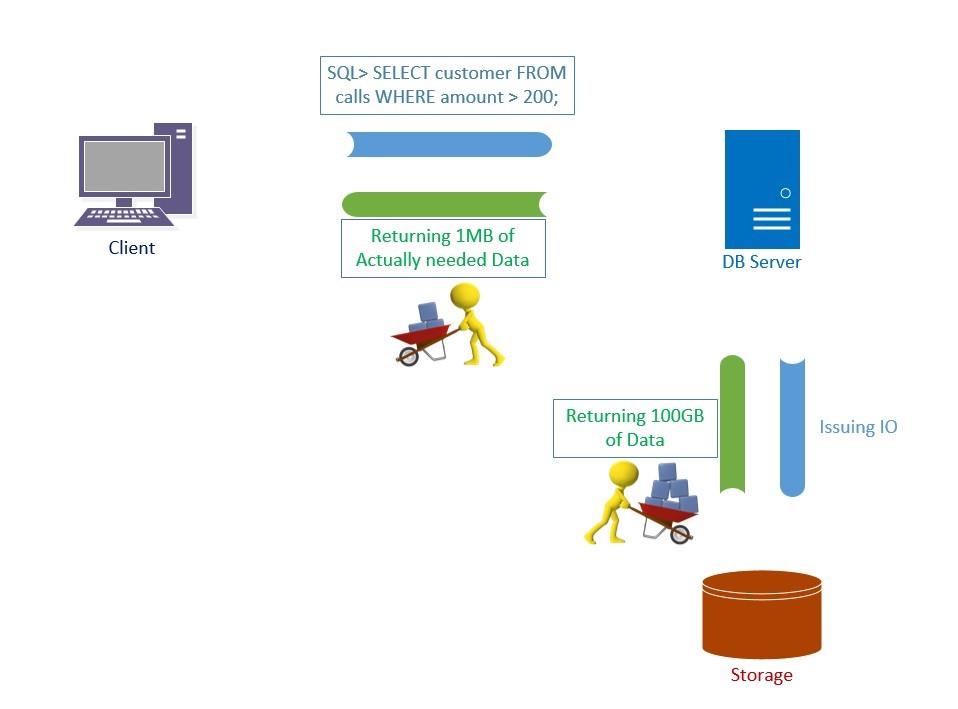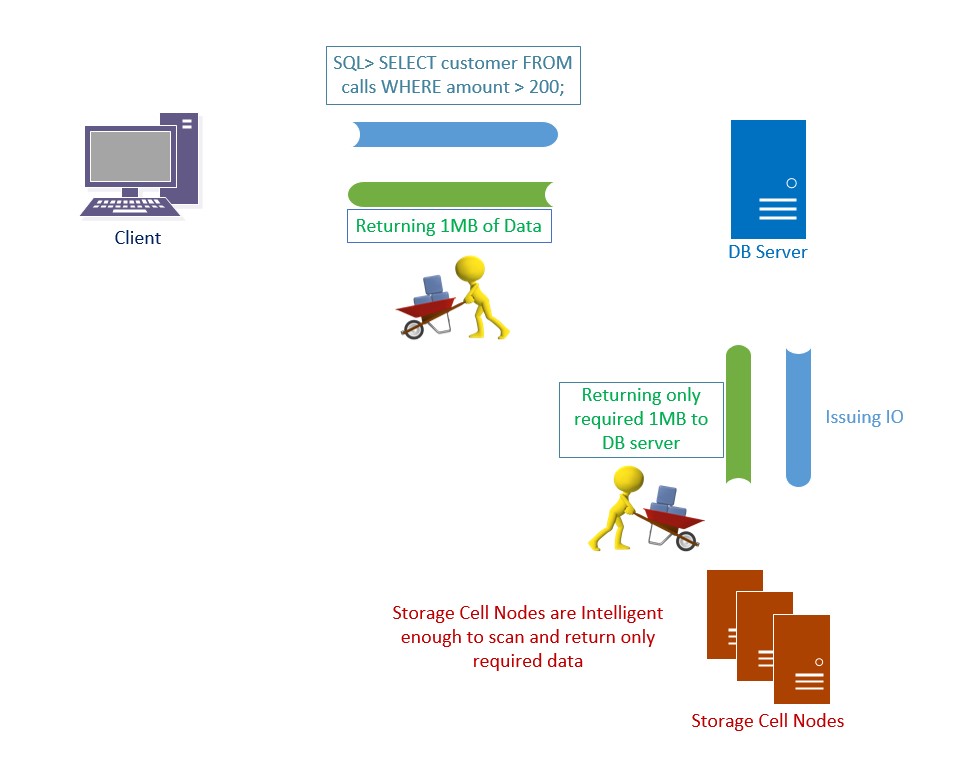The Oracle Exadata Database Machine is a comprehensive data management system designed to optimize database performance for IO-intensive workloads. One of the key features of Exadata is Smart Scan, which is specifically designed to improve SQL query performance within the Oracle Database.
In a traditional database environment, SQL queries are processed solely on the database server, and storage is only used to provide data requested by the database nodes. This means that when a query is executed, the storage system sends all of the data in the table to the database node, regardless of whether it is needed or not. This can lead to significant strain on both the database-to-storage connection and the database node itself.

With Smart Scan, the database node uses the LIBCELL library to pass filtering requirements from the SQL statement to the Exadata storage nodes. The storage nodes are intelligent enough to understand the filtering requirements, process them, apply filtering, and return only the required data to the database node. This means that only the data that is required to fulfill the query is sent to the database node, reducing the amount of data that needs to be processed and minimizing the processing load on the database node.
Smart Scan is able to achieve this level of optimization due to the intelligent design of the Exadata storage nodes. These storage nodes are not just storage, but also have compute capabilities, which allows them to process filtering requests at the storage level. In addition, Exadata uses Infiniband or RDMA links, which provide low-latency, high-bandwidth connections between the database node and the storage nodes.

Smart Scan is capable of performing several optimization techniques to further accelerate SQL query performance. These include Storage Indexes, which are in-memory structures used to speed up queries on large tables; Column Projection, which allows only the required columns to be retrieved from the storage nodes, reducing the amount of data that needs to be transferred between the database node and the storage nodes; Predicate Filtering, which filters out unnecessary data before it is transferred to the database node; and Bloom Filtering, which is a technique used to eliminate unnecessary I/O operations during join processing.
In conclusion, Smart Scan is an essential feature of the Oracle Exadata Database Machine for accelerating SQL query performance. By processing filtering requests at the storage level and minimizing the amount of data that needs to be transferred to the database node, Smart Scan significantly reduces the processing load on the database node and improves overall database performance. With additional optimization techniques such as Storage indexes, column Projection, Predicate Filtering, and Bloom Filtering, Smart Scan is able to provide unparalleled performance for IO-intensive database workloads.
Hi, this is a comment.
To get started with moderating, editing, and deleting comments, please visit the Comments screen in the dashboard.
Commenter avatars come from Gravatar.